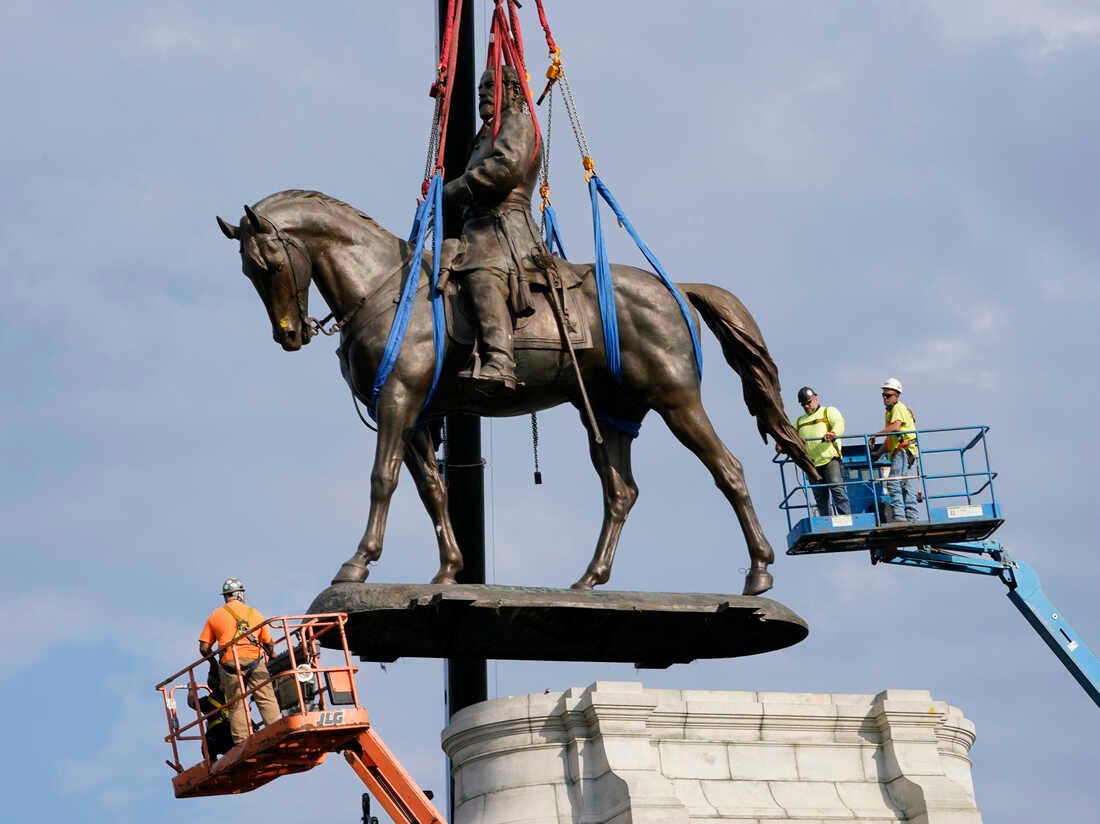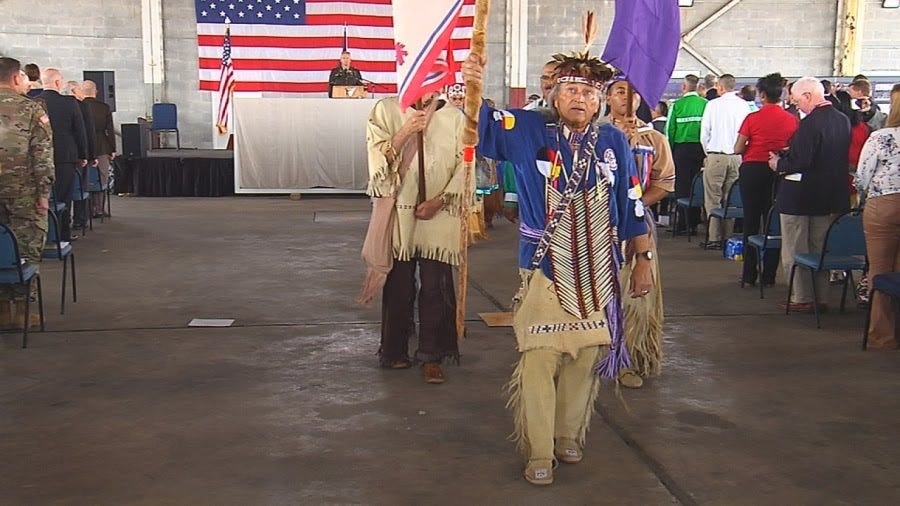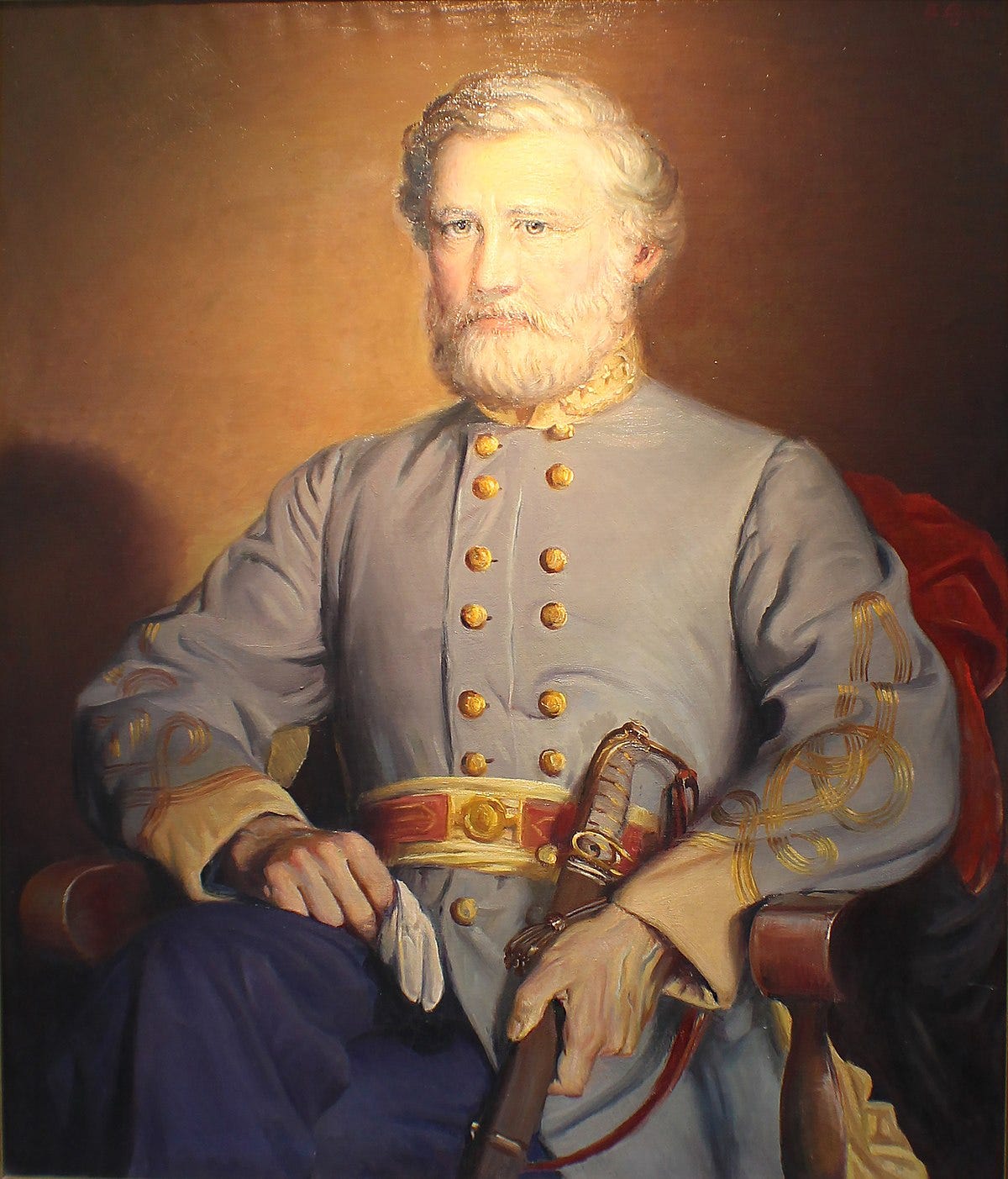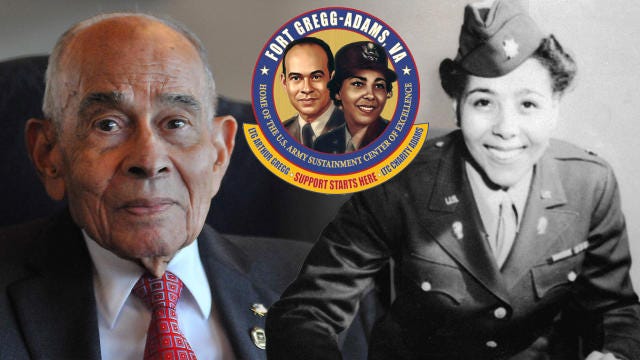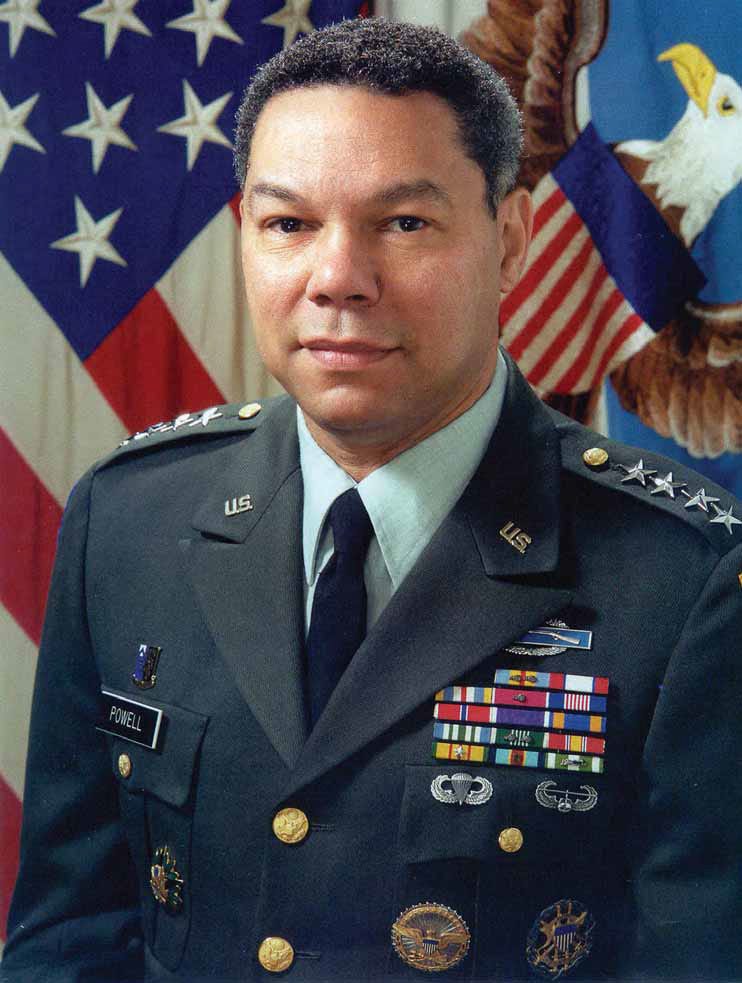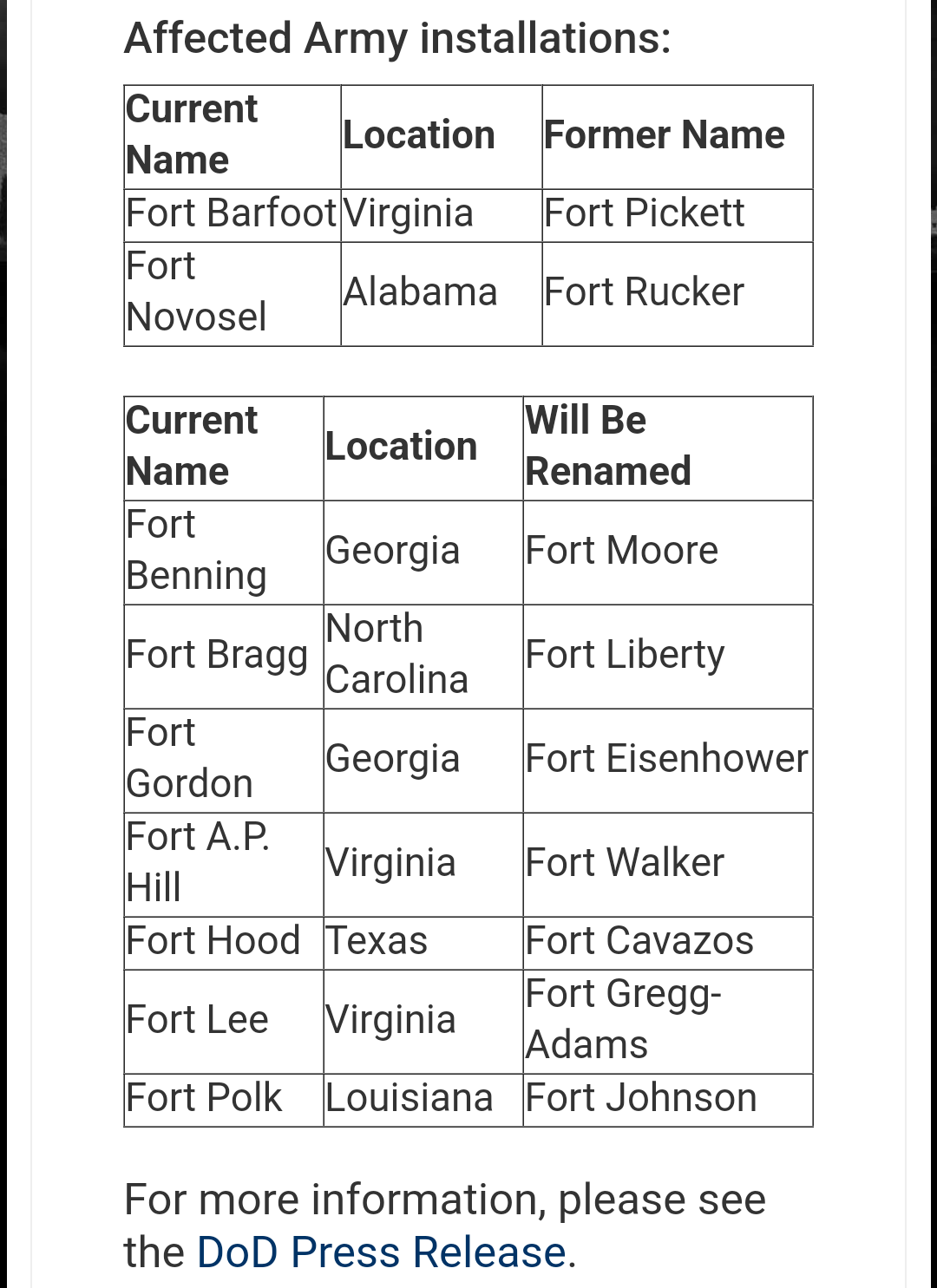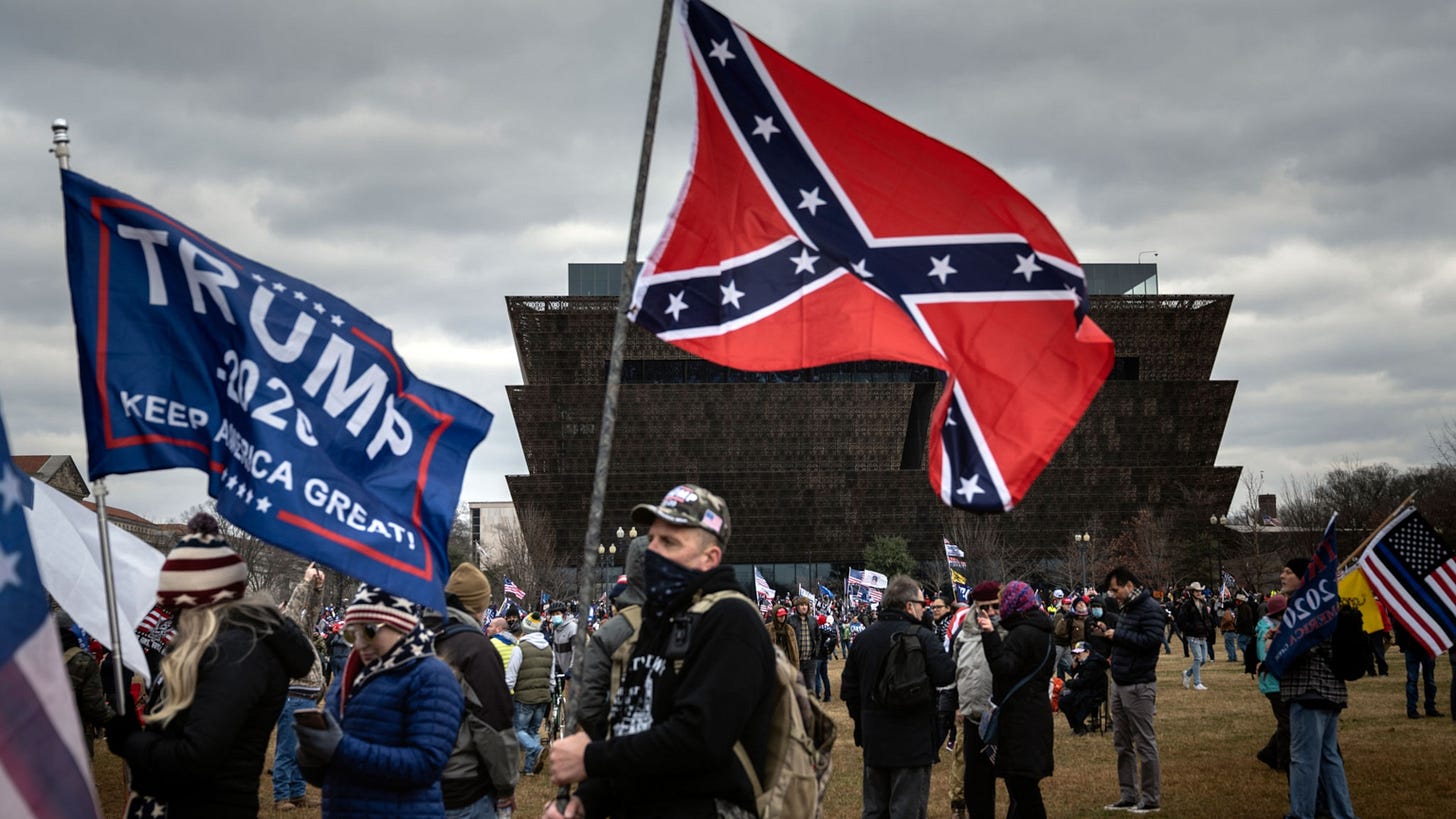Army Forts named for Confederate traitors renamed for American heroes
Get the Point!
I spent the first 11 years of my life as both a so-called "Army Brat" and a budding history buff, so it shouldn't surprise any of my readers that the same child who grew up fascinated by Civil War era history found it strange to visit Army posts that were named for Confederate Army generals and leaders who fought in open rebellion to the U.S. Constitution. Confederates, I remind, whose primary purpose for rebelling was to keep my ancestors enslaved across the South (with hopes of expanding slavery into western territories that had yet to form state governments).
In fact, many of my very first real memories from childhood are from Ft. Benning, the hallowed Infantry/Ranger training center where my father, the late Lt. Col. Charles Hobbs, was stationed when I was just a toddler.
Chuckie Hobbs, age 3, during picture day at my nursery school near Fort Benning, Georgia…
Years later, when I learned that the Fort was named for Confederate General Henry Benning, a lawyer and Georgia Supreme Court Justice who led the state's secession movement to preserve slavery, I could only wonder "how?”
Well, the "how" is quite easy when you realize that long after the Civil War had ended, the "Lost Cause" historical movement began in academia that sought to glorify the rebels and their rebellion in American history courses. Rank sophistry, such as teaching that the South seceded from the North to preserve "States' Rights" while conveniently omitting that the southern "states" wanted the "right" to preserve slavery, became the standard of the day!
Thus, the folly when modern day know nothings ranging from your next door neighbor, to former President Donald Trump, claim that the Confederacy and its Battle Flag were about "heritage" and not "hate," they are deliberately choosing to dismiss that the heritage of which they speak is one of enslaving, bartering, brutalizing, raping, and oft times, murdering enslaved Black men, women, and children.
Former President Donald Trump, though a New Yorker of German descent, was (and remains) a strong supporter of alt-right groups that glorify the Confederacy and its leaders who enslaved and then terrorized Blacks after the Civil War, and later drafted Jim Crow laws that segregated Blacks well into the 1960’s…
I also note that the "Lost Cause" historical movement gained popularity around the same time that the civil rights that Black people had earned during the Reconstruction era were being rolled back by Jim Crow "separate but equal" laws that were held to be legal by the U.S. Supreme Court's Plessy vs. Ferguson decision in 1896.
Five years after my Facebook post about the Confederate monument at the Gadsden County Courthouse near Tallahassee in 2015, the monument was taken down…
Over the next 40 years, the sons, daughters, and grandchildren of Confederate leaders erected massive statues in city squares and on state courthouse lawns—while streets and schools were named to honor men like Confederate President Jefferson Davis and Generals Robert E. Lee, Jeb Stuart, Stonewall Jackson, and Nathan Bedford Forrest, the latter among the founders of the Ku Klux Klan circa 1867. These “honors” were made to defy Blacks and their white allies, and to remind Blacks to remain in their second class citizen places across the South.
City workers in Richmond, Virginia, the second (and longest) capital of the Confederacy, remove the massive statue of General Robert E. Lee from a prominent city square to a museum—where it belongs circa 2021!
By the late 1930's and early 1940's, as the U.S. government erected bases to train the millions of men and women who would fight Nazi tyranny during World War II, that same government, sadly, began naming the new bases after tyrannical Confederate leaders like Gen. Henry Benning, Gen. John B. Hood, General John Gordon, and even Gen. George Pickett, the man who led the disastrous "Pickett's Charge" during the Battle of Gettysburg that still serves as the enduring symbol of Southern arrogance and defeat!
Fort Pickett in Virginia, named for the foolish Confederate General George Pickett, has been renamed in honor of Sgt. Van Barfoot, a Native American who earned the Medal of Honor during World War II for valor in combat against the Nazis.
Cognizant of this history, I am ecstatic that as I prepare to celebrate my 51st birthday tomorrow, Florida's Emancipation Day no less (May 20th), that I will be able to smile in knowing that, at long last, the U.S. government is renaming Army forts for American heroes—not American traitors!
Chief among the changes:
Fort Benning in Georgia, named for Confederate General Henry Benning (pictured below), will be renamed Fort Moore in honor of Vietnam War General Hal Moore and his wife, Julia. Gen. Moore was the subject of the Vietnam era book and movie, "We Were Soldiers," which starred Mel Gibson as Moore.
Fort Hood in Texas, named for Confederate General John Hood, will be renamed Fort Cavazos to honor General Richard E. Cavazos, a Hispanic-American soldier who distinguished himself in both the Korean and Vietnam Wars;
Fort Lee in Virginia, named for Confederate General Robert E. Lee, will be renamed Fort Gregg-Adams in honor of two Black soldiers: Lt. General Arthur J. Gregg, and Lt. Colonel Charity Adams.
Fort Polk in Louisiana, named for Confederate General Leonidas Polk, will be renamed Fort Johnson in honor of Army Sergeant William Henry Johnson, a legendary member of the famous Black "Harlem Hellfighters" who distinguished themselves in battle against Kaiser Wilhelm's German Army during World War I.
Fort Bragg in North Carolina, named for Confederate General Braxton Bragg, will be renamed Fort Liberty. I had hoped that this Fort (or Benning) would be renamed in honor of General Colin Powell (below), the first Black to serve as Chairman of the Joint Chiefs of Staff and as Secretary of State, to no avail—at least not yet!
Fort Gordon in Georgia, named for Confederate General John Gordon, will be renamed in honor of General Dwight Eisenhower (below), the Supreme Allied Commander during World War II and the 34th President of the United States.
A full listing of the pending changes:
To be clear, do know that the historian in me has studied and knows more about the South and its Confederate leaders than probably 99.9 percent of the ignorant folks who wear Confederate Battle Flag hats and place Stars and Bars stickers on their trucks. To that end, do know that I truly believe that Confederate history is important for many reasons, including the need to understand how the anarchists of today, like the January 6th MAGA rioters, share a great many traits with their rebellious ancestors from the 1860s.
Scores of Confederate Battle Flags flew proudly during the January 6, 2021 MAGA riots in support of former President Trump…
But I must state in the strongest terms that studying history is not the same as glorifying bad actors in history as for far too long, those traitorous, racist, Confederate enslavers have been honored in America's cities, schools, and military bases despite the fact that a very good case could be made that they ALL should have been hanged or shot for treason at the end of the Civil War.
Lest we forget...





